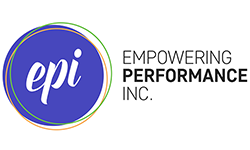The Power of One Percent
Thomas Edison once said, “Genius is one percent inspiration, ninety-nine percent perspiration.” I wouldn’t call myself a genius, but I do consider myself a creative person and I get what he means. The flash of insight that seems to come out of nowhere is only a small percentage of what it takes to move things from the drawing board to the production line.
But don’t underestimate the power of that one percent. While many ideas may languish between the inspiration and the perspiration, they all begin with an initial spark of imagining what could be.
I’ve been thinking a lot about imagination and creativity lately, partly because my daughter and I are rereading J. K. Rowling’s Harry Potter series. It’s an epic feat of imagination (and, no doubt, plenty of perspiration).
Rowling is the first to admit she benefited from a lifetime of reading things that sprang from others’ imaginations: The Chronicles of Narnia, The Iliad, and Macbeth, and much more. But she was also a lifelong daydreamer. In fact, she was staring out a train window, daydreaming, when the plot of Harry Potter “fell into” her head.
It’s a fun example of where daydreaming can lead. But as a leader, how comfortable are you with seeing a team member gazing out a window? Do you equate such behavior with “goofing off”?
Would it change your reaction to know that daydreaming is one of the more important things you can do to foster creativity?
Brain studies suggest that mind wandering stimulates a connection between our conscious and unconscious minds. Daydreaming is a unique mental state that allows otherwise opposing neural networks to work in tandem. So, staring out that window and allowing your mind to wander sparks your imagination in ways that hunkering down at your computer does not.
Why care about imagination? As a 2015 Huffington Post article says, “Imagination stimulates creativity and innovation.” Creativity is the production of something original and useful. The creative mind not only comes up with unique ideas, it synthesizes multiple ideas into the most worthwhile action steps. That’s why business leaders value the creative process more than ever. The World Economic Forum’s 2016 The Future of Jobs report makes it clear that by 2020 creativity will be one of the top skills sought by employers.
With this in mind, at EPI we’re reinvigorating our design toolbox, thinking innovatively, and investing in our own creative development.
Yes, we stand on the shoulders of giants. And that’s all for the better because it gets our heads into the clouds . . . where we can imagine what learning could be.
P.S. For insights into how failure, imagination, and empathy are linked, check out J. K. Rowling’s 2008 Harvard Commencement Address, “The Fringe Benefits of Failure, and the Importance of Imagination.”
Michelle Kelly, CEO (Chief Enjoyment Officer)

